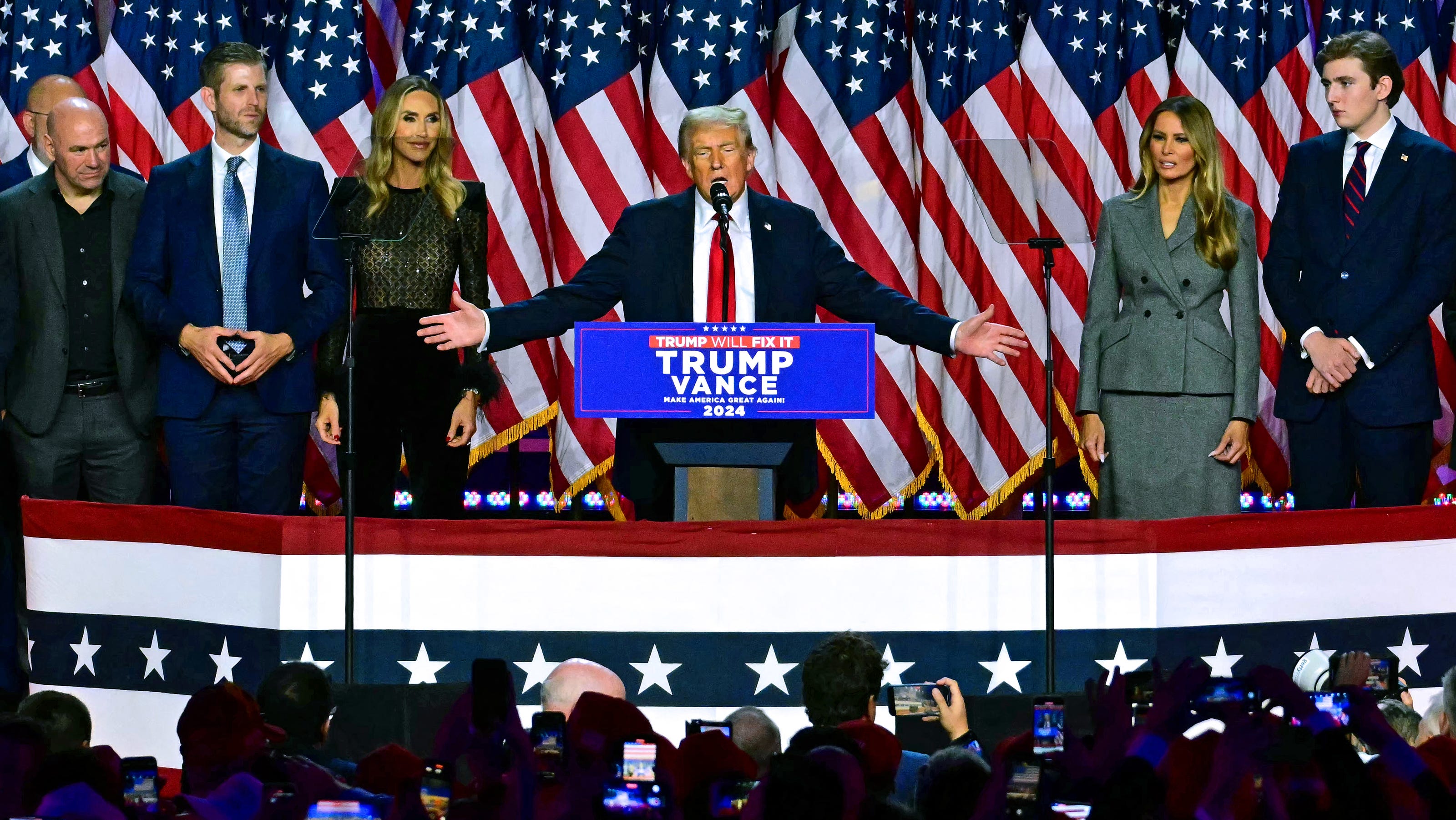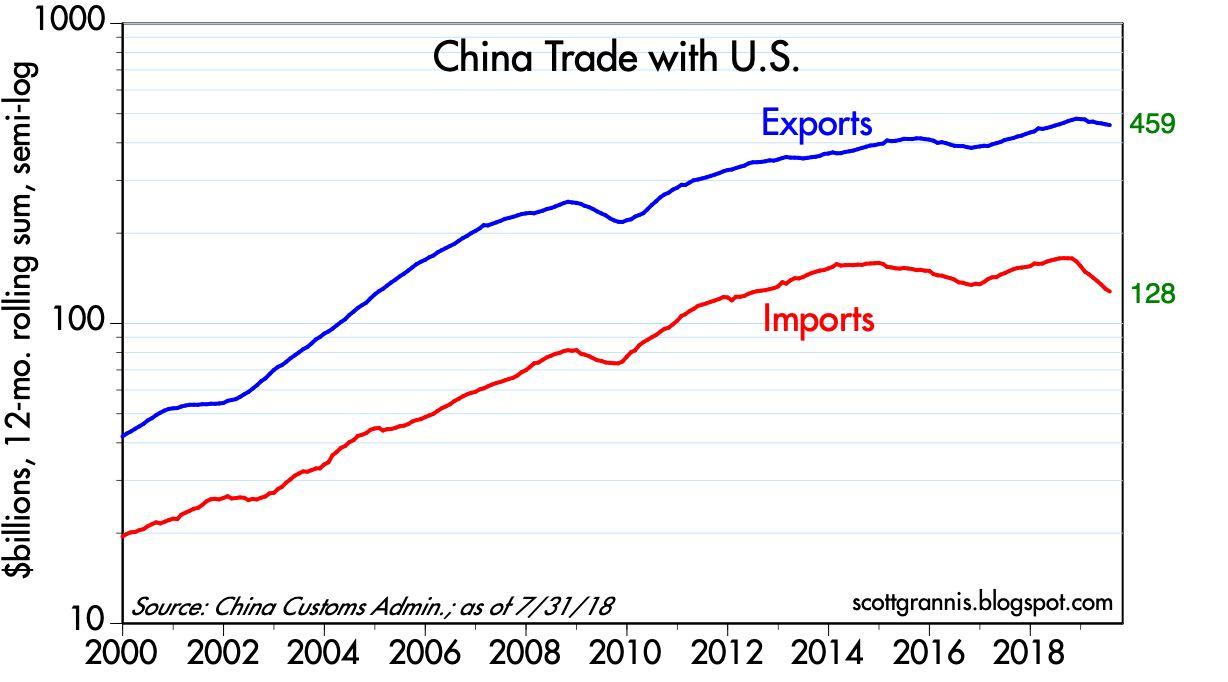The Economic Fallout Of Trump's Presidency: Who Bears The Burden?

Table of Contents
The Rise of the National Debt Under Trump
One of the most significant economic consequences of the Trump administration was the substantial increase in the national debt. This surge in Trump's national debt resulted from a combination of factors, primarily large tax cuts and increased government spending. Understanding the Trump administration debt increase requires analyzing his fiscal policy.
-
Quantifying the Increase: The national debt increased by trillions of dollars during Trump's four years in office, representing a significant jump compared to previous administrations. Precise figures vary depending on the accounting methods used, but the scale of the increase is undeniable.
-
Impact of Tax Cuts: The Tax Cuts and Jobs Act of 2017, a cornerstone of Trump's fiscal policy Trump, significantly reduced corporate and individual income tax rates. While proponents argued this would stimulate economic growth, critics pointed out the reduced government revenue would exacerbate the national debt. This decrease in revenue directly contributed to the increased national debt under his presidency.
-
Increased Military Spending: A substantial increase in military spending also contributed to the rising national debt. This spending, while argued as necessary for national security, added considerably to the overall budget deficit and the Trump national debt.
-
Long-Term Consequences: The long-term consequences of a rapidly rising national debt are far-reaching. They include increased interest payments, reduced government spending on other vital programs, and potential inflationary pressures. These factors could significantly impact future economic growth and stability, placing a heavy burden of Trump's policies on future generations.
Impact on the Working Class and Middle Class
The Trump presidency economic impact on the working and middle classes remains a subject of intense debate. While some argue that his policies benefited these groups through job creation, others point to stagnant wages and increased income inequality. Assessing the middle class Trump economy requires a nuanced analysis.
-
Wage Stagnation: Real wage growth during Trump's presidency remained relatively stagnant for many working-class and middle-class Americans, failing to keep pace with inflation for a significant portion of the population. This wage stagnation Trump represents a substantial challenge to economic mobility.
-
Job Creation Statistics: While job creation numbers were positive during parts of his term, the quality of jobs created and their impact on income levels require careful examination. The sector-specific nature of job growth needs analysis to avoid an overly rosy picture of the Trump economic impact working class.
-
Impact of Trade Policies: Trump's trade policies, including tariffs and trade wars, significantly impacted manufacturing jobs. While some sectors might have seen short-term gains, others faced substantial job losses and economic disruption. Analyzing the impact of these Trump trade war impact on specific communities reveals a complex and uneven outcome.
-
Income Inequality: Critics argue that Trump's policies exacerbated income inequality and wealth disparity. Tax cuts disproportionately benefiting the wealthy, coupled with stagnant wages for many, contributed to a widening gap between the rich and the poor. This increase in income inequality Trump fundamentally undermines economic fairness.
The Impact on Specific Industries
Trump's economic policies significantly impacted various sectors of the US economy. The Trump trade war impact, deregulation efforts, and energy policies had profoundly different effects on different industries.
-
Agriculture and Manufacturing: The trade wars initiated by the Trump administration significantly affected the agricultural and manufacturing sectors. Farmers faced reduced exports and retaliatory tariffs, while manufacturers contended with increased input costs. This impact on agriculture Trump economy and manufacturing Trump presidency highlighted the unpredictable nature of protectionist trade policies.
-
Deregulation and Environmental Protection: Trump's administration pursued a policy of deregulation across various sectors, including environmental protection. This led to concerns about the long-term consequences for industries related to environmental protection and resource management. Analyzing the impact of this Trump trade war impact reveals long-term risks that may outweigh short-term gains.
-
Energy Sector: Trump's energy policies, focused on fossil fuels, significantly impacted the energy sector. While this boosted some aspects of the industry, it raised concerns about climate change and the long-term sustainability of the approach. The energy sector Trump administration policies require comprehensive analysis of both short-term economic gains and long-term environmental and social costs.
Long-Term Economic Consequences of Trump's Policies
The long-term economic effects Trump are still unfolding, but several potential consequences are already evident. Understanding the future economic impact Trump is crucial for effective policymaking.
-
National Debt and Future Growth: The significantly increased national debt carries considerable long-term implications. Higher interest payments will strain future budgets, limiting government spending on crucial public services and potentially hindering economic growth. This threatens sustainable economic growth Trump advocates for.
-
Economic Instability: The frequent shifts in economic policy during the Trump administration created uncertainty for businesses and investors. This volatility can hinder long-term planning and investment, potentially leading to economic instability in the years to come. Understanding this inherent Trump legacy economy instability is vital.
-
Income Inequality and Social Mobility: The widening income inequality under the Trump administration could have long-lasting consequences for social mobility and economic opportunity. A more unequal society faces increased social and political instability. Assessing the Trump legacy economy requires considering these long-term societal ramifications.
Conclusion
The economic fallout of Trump's presidency is multifaceted and complex. The significant increase in the national debt, the uneven impact on the working and middle classes, and the varied effects on specific industries all contribute to a legacy of economic uncertainty. Understanding the burden of Trump's policies requires a comprehensive analysis of their short-term effects and their potential long-term economic effects Trump. The lasting effects of his policies on income inequality and economic stability will likely continue to shape the American economy for years to come. Understanding the economic consequences of the Trump administration is crucial for informed discussion and policymaking. Continue exploring the complexities of Trump's economic policies and their lasting effects to fully grasp the burden they placed on the American economy. Further research into the long-term ramifications is vital for shaping a more equitable and sustainable economic future.

Featured Posts
-
 Harvard Faces 1 Billion Funding Cut Under Trump Administration
Apr 22, 2025
Harvard Faces 1 Billion Funding Cut Under Trump Administration
Apr 22, 2025 -
 Increased Student Fear Following Fsu Security Gap Even With Rapid Police Response
Apr 22, 2025
Increased Student Fear Following Fsu Security Gap Even With Rapid Police Response
Apr 22, 2025 -
 How Tariffs Threaten Chinas Export Led Growth Model
Apr 22, 2025
How Tariffs Threaten Chinas Export Led Growth Model
Apr 22, 2025 -
 Strengthening Regional Security China Indonesia Security Dialogue
Apr 22, 2025
Strengthening Regional Security China Indonesia Security Dialogue
Apr 22, 2025 -
 Pan Nordic Defense A Deep Dive Into Swedish Armor And Finnish Personnel
Apr 22, 2025
Pan Nordic Defense A Deep Dive Into Swedish Armor And Finnish Personnel
Apr 22, 2025
